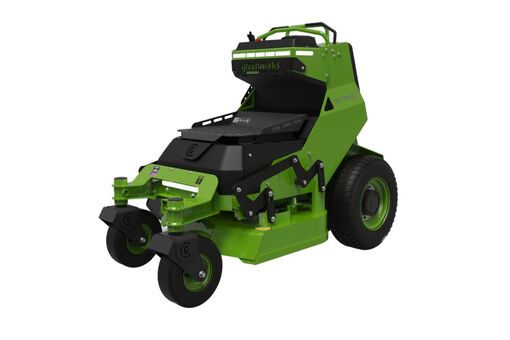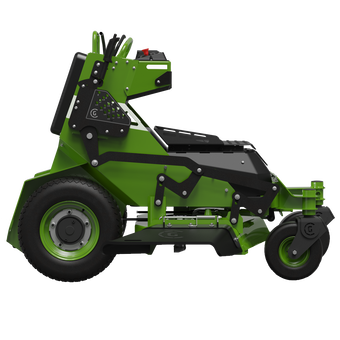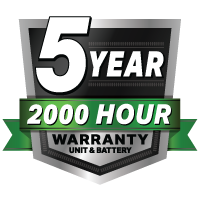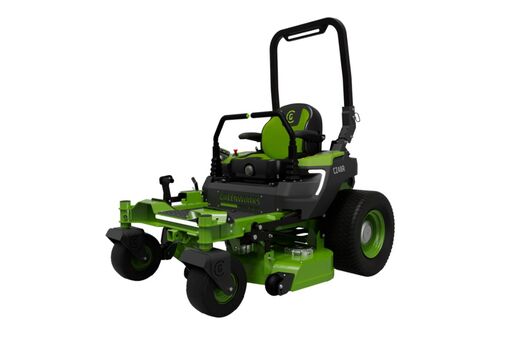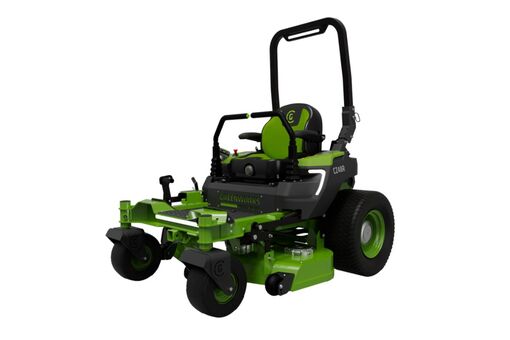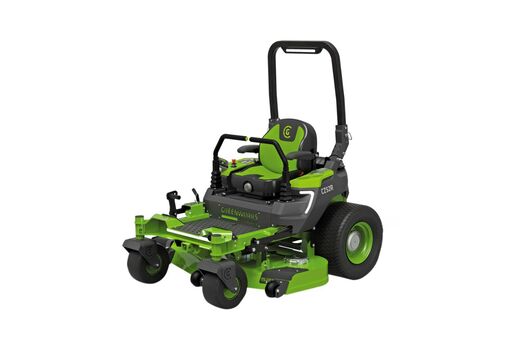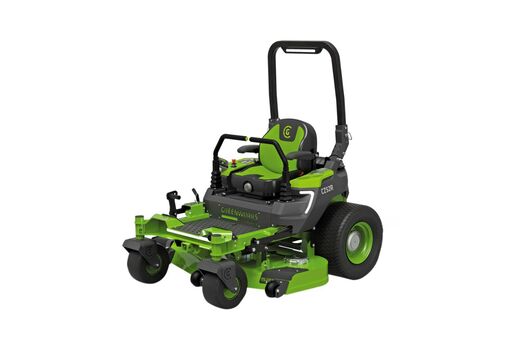Greenworks 82v OptimusZ Professional 8kWh 32" Stand On Zero Turn Mower
- 5 Year 2000 Hour Warranty
- 5 Hour Runtime
- Mow Up to 7 Acres
- 3 Hour Charge Time
- 17 Deck Positions
- 113kg Utility Plate
- 9 Gauge Custom Fabricated Deck
Product Description
Engineered for all day commercial use, landscapers can now confidently mow up to 7 acres and enjoy 5 hours of runtime thanks to the highly efficient, built-in 8kWh battery module with safe LFP cell technology. Two industry first, ultra low profile hub drive brushless motors (5kW output power each), planetary gearing and intelligent, interconnected systems provide users with unmatched driving performance, capabilities and comfort.What is an inverter generator?
An inverter generator is a type of generator that produces AC (alternating current) power by converting DC (direct current) power using advanced electronic circuitry. Inverter generators are designed to be more efficient and quieter than traditional generators, making them popular for camping, RVing, and other outdoor activities where noise and portability are important factors.
Unlike conventional generators, inverter generators are designed to produce clean and stable power that is suitable for sensitive electronics such as laptops, smartphones, and other electronic devices. They also have a smaller and more lightweight design compared to traditional generators, making them easier to transport and store.
What size generator do I need?
Inverter generators typically u se gasoline as fuel, but some models can also run on propane or natural gas. They come in a range of sizes and power outputs, from small portable models that produce a few hundred watts to larger models that can produce several thousand watts of power. The size of the generator you need depends on several factors such as the power requirements of the appliances and devices you want to run, the duration of use, and the type of generator you choose. Here are the steps to help you determine the appropriate size of generator for your needs:
- Determine the total wattage of the appliances and devices you plan to power simultaneously. You can find this information on the label or in the manual of each device.
- Add up the wattage of all the devices you want to run simultaneously. This gives you the total wattage required.
- Decide how long you need to run the generator. If you plan to use it for extended periods, you may need a larger generator to ensure that it can sustain the load.
- Consider the type of generator you want. Portable generators typically have lower wattage capacities than standby generators.
- Choose a generator with a wattage capacity that is equal to or greater than the total wattage required by your devices. It's better to choose a generator with a slightly higher capacity to ensure that it can handle any sudden surges in power demand.
In summary, to determine the appropriate size of generator you need, you need to calculate the total wattage of the devices you plan to run, consider the duration of use, and choose a generator with a wattage capacity that can handle the total load.


